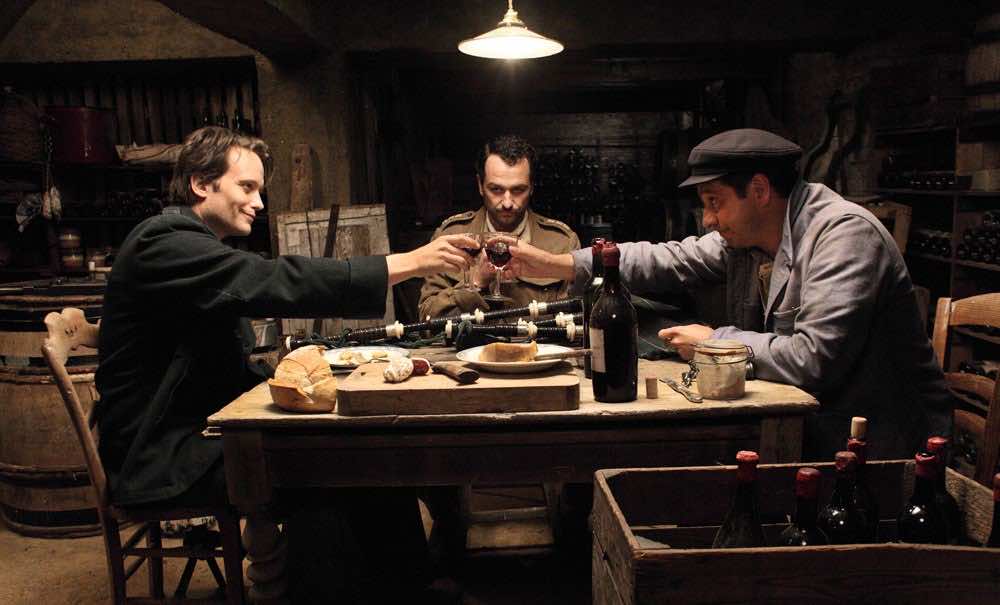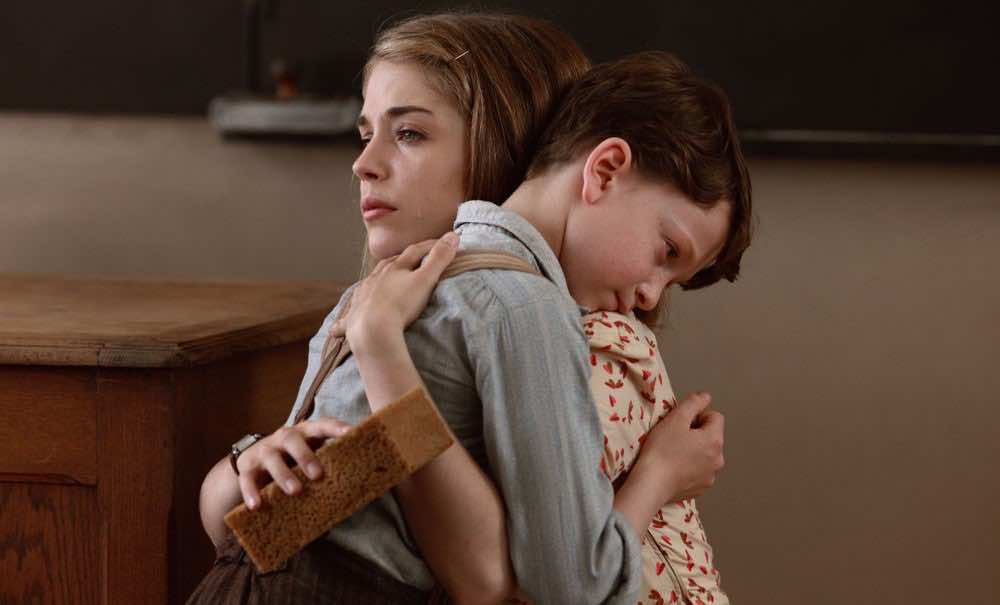
Wars are shocking and impactful phenomena that have devastating consequences for the human experience. As Betrand Russel once said, “War does not determine who is right – only who is left.” It is in this vein that French filmmaker Christian Carion has directed his latest film, Come What May, a suspense-filled drama he co-wrote with Andrew Bampfield and Laure Irrmann that depicts Nazi atrocities in such a vivid way it will get the audience furious all over again about that terrible regime. Despite a formulaic feeling that will be familiar to those who have seen many World War II films, the violence is quite vivid and inescapable, set in contrast to the bucolic European landscape, which is heightened by strong camera work and a score from a well-known composer.
In Come What May we follow August Diehl, who delivers a deeply moving performance as Hans, a German anti-Nazi activist. With a troubled stare that transcends any language barrier, Diehl’s eyes express the profound emotions elicited in war, fear, anger and pain. He is hiding with his son, Max (Jushio Marlon) in a town outside Arras, France. He instructs him early on to only speak French, and they are mistaken for Belgians because of their accent. Max, however, slips back to his mother tongue constantly, especially when relaxed. They both land in a farm in France, where Hans finds work, and they try to make a life. However, before they know it, the Nazi forces close in until they are forced to leave that town as well. Hans and Max get separated. Hans gets caught up in the violence and encounters an English soldier, while Max leaves with a caravan of French farmers they had been staying with. As it happens during wartime, this separation leads to complications.

These parallel stories speak to the human toll wars cost — from dislocation to a true loss in the human condition for soldiers who encounter all sorts of ways to lose faith in the course of fighting. In the end, Carion makes it a point to show that no matter what side of the war you are on, survival becomes the primary goal. Violence and scarcity bring out the worst in people, pitting neighbors against each other on one hand and making lasting bonds for those who are able to survive together. The most poignant moments come when Carion shows us the life of children, who are at the mercy of these broken adults. After a particularly violent airstrike, the immediate aftermath features a deadening silence that is only broken by the cry of babies and children.

The dialogue in Come What May is heavy. While it feels like Carion and his writing partners tried to stick close to historical facts, at times it feels contrived. Though the setting and costumes do the era a lot of justice, the empathy that Carion seeks could be heightened if the dialogue felt more natural. For a while, some of the scenes in this film reminded me of a Masterpiece Classics episode, with excellent photography and fantastic acting by brilliant casts, but with somewhat stiff dialogue that feel taken from classic literature rather than close to life. It is surely an escape, not a bad one at that, but one that could have used some editing.
The score by Ennio Morricone and the cinematography by Pierre Cottereau, never disappoint, however, heightening atmosphere above the film’s substance. These elements, along with Diehl’s performance, stand-out in this film, only adding to the emotions that Come What May packs. However, the downfall of this film is that it can be sentimental, or even worse, formulaic at times. You get the feeling that you know what’s coming, and you probably do if you’ve seen WWII films.
Come What May runs 115 minutes long, is in French, German and English with English subtitles and is rated R. On Sept. 30 it will be playing in our South Florida are at MDCs Tower Theater, the University of Miami’s Bill Cosford Cinema, and the Living Room Theaters in Boca Raton. For nationwide screenings please click here. Images and a screener link was provided by Cohen Media for the purposes of this review.









